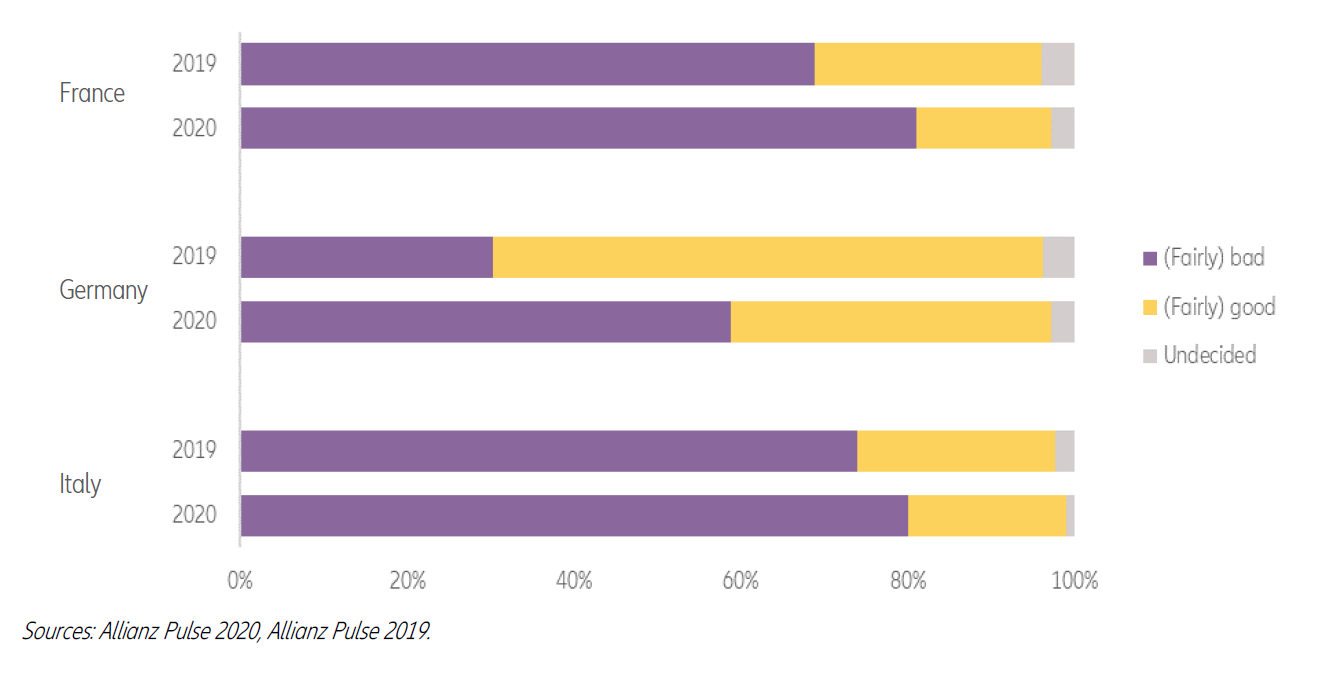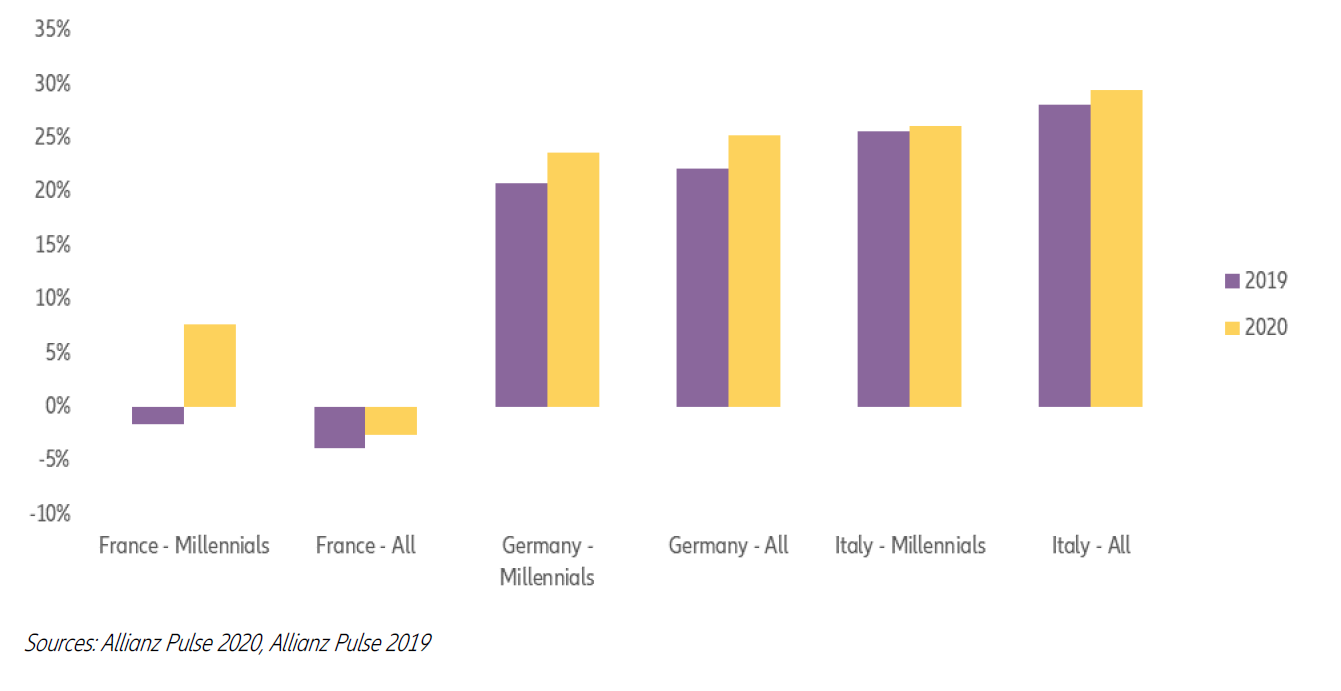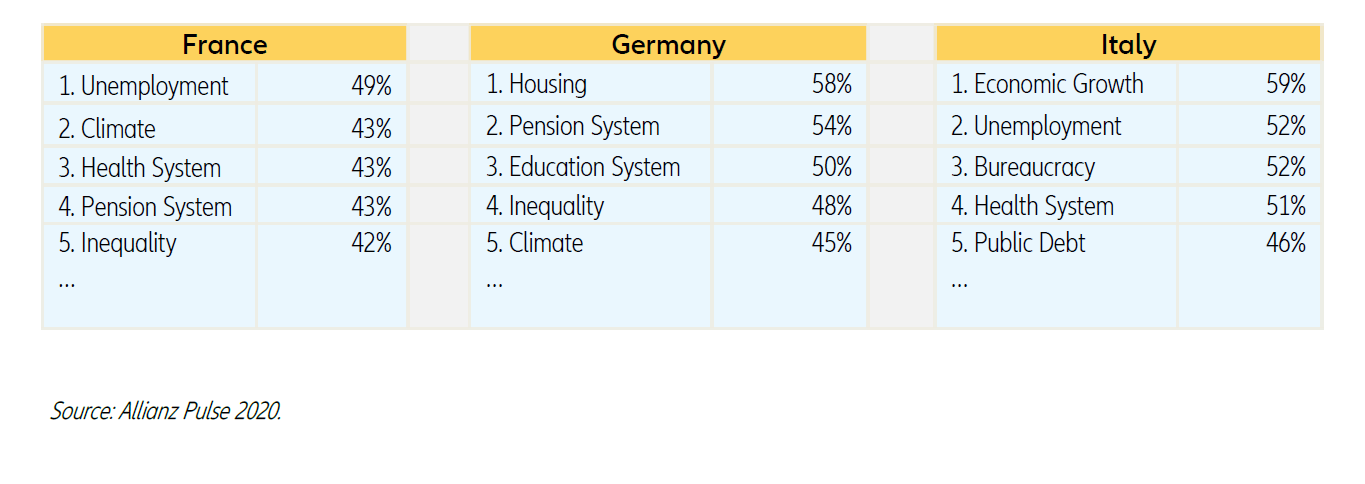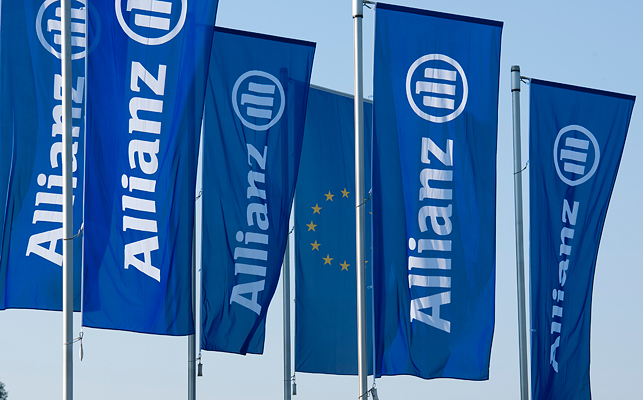We’re inching closer to the end of what has been a rather tough year. Is the worst of it behind us?
The global jury is still out. But a section of the Europeans seems convinced that there’s little to look forward to in the post-pandemic future. Checking the pulse in Germany, Italy and France, Allianz economists found that pessimism in the continent about politics, reforms and aspirations is deeper than previously believed.
It’s not just those directly hurt by the Covid-19 crisis feeling blue. An overwhelming majority of the 3,000-odd people surveyed said they were unaffected, at least economically, by the pandemic. In fact, many were even satisfied with how their governments dealt with the outbreak.
Yet, this did little to make them feel positive about the future.
There are suggestions that political apathy and euro skepticism are set to intensify in the region after the crisis. Bad news for digitalization too. Although the crisis highlighted the importance of achieving this goal set by the European Commission, digitalization has slipped on the priority list of many respondents. Thankfully, sustainability remains important to them.
A closer look at the findings of ‘Allianz Pulse 2020: The political attitudes of the French, Germans and Italians – Grim Expectations’...






